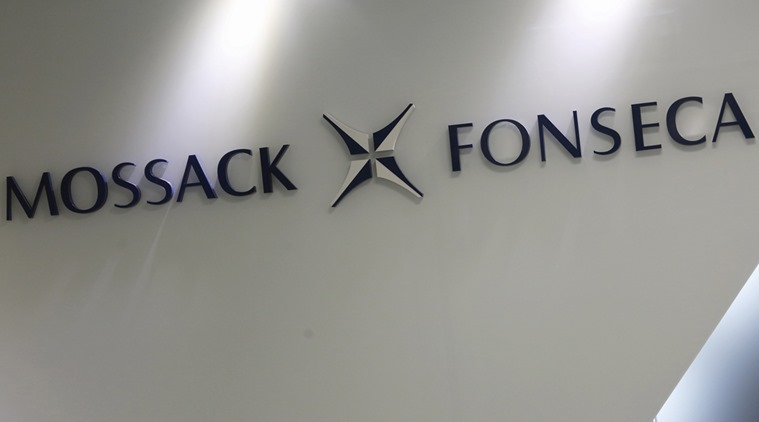Panama Papers aftermath: Inside the fall of Mossack Fonseca – panic, chaos, and the end
The new documents reveal that Mossack Fonseca couldn’t identify tens of thousands of owners of companies it had registered in opaque, low-tax jurisdictions.
Written by Will Fitzgibbon | New Delhi | Updated: June 20, 2018 11:09:22 pm

This account of Mossack Fonseca’s final months is the result of a second major leak from the firm. (File Photo)
Co-authored by Ben Hallman
ON MARCH 9, 2016, employees of Mossack Fonseca, a Panamanian law firm that for decades had kept the financial secrets of global celebrities, oligarchs and criminals, made a stomach-churning discovery. Someone had copied huge amounts of data from its computers.
50s
Emails, contracts, banking statements — 11.5 million documents of the firm’s most sensitive client records, a staggering 2.6 terabytes of data — had been taken. Suddenly, newly obtained Mossack Fonseca documents show, employees began working furiously on a new mission: find out who its clients were. Over the next weeks and months, newly leaked documents show, Mossack Fonseca employees frantically emailed bankers, accountants and lawyers – the professionals who had hired the firm to set up shell companies for wealthy clients who wanted to remain anonymous – in an attempt to close the gaps in its recordkeeping. Those intermediaries responded with panic and fury.
“THE CLIENT DISAPPEARED! I CAN NOT FIND HIM ANYMORE!!!!!!!,” Nicole Didi, a Swiss wealth management adviser, wrote in March 2017. A long-time intermediary of Mossack Fonseca, she acted for 80 companies set up by the firm.
“This has been ridiculous,” wrote Eliezer Panell, a Florida lawyer who grew exasperated at Mossack Fonseca’s multiple requests — sometimes only one day apart — that he obtain and share documents from two offshore company owners to prove their identity.
“This has been ridiculous,” wrote Eliezer Panell, a Florida lawyer who grew exasperated at Mossack Fonseca’s multiple requests — sometimes only one day apart — that he obtain and share documents from two offshore company owners to prove their identity.
“WE CAN’T GO BACK a day after asking for papers to ask for something else,” he wrote. “WE LOOK LIKE Fxxxxxx AMATEURS. A Mickey Mouse operation.”
The new documents reveal that Mossack Fonseca couldn’t identify tens of thousands of owners of companies it had registered in opaque, low-tax jurisdictions. This account of Mossack Fonseca’s final months is the result of a second major leak from the firm. The first leak led to the Panama Papersinvestigation and the firm’s undoing.
In April 2016 the International Consortium of Investigative Journalists (ICIJ) and more than 100 media partners published hundreds of stories based on the leak of millions of internal documents that exposed the firm’s inner workings from the late 1970s to 2015.
Crackdown begins
Police raided Mossack Fonseca’s offices in El Salvador, Peru and Panama City. By the end of 2016, governments and companies in 79 countries had opened 150 inquiries, audits or investigations into the law firm, its intermediaries or clients. Governments opened investigations into companies set up by some of Mossack Fonseca’s busiest office locations, including Panama, the British Virgin Islands, Samoa, the Seychelles and Anguilla.
In April 2016, the Seychelles Financial Services Authority, which regulates operators like Mossack Fonseca to ensure offshore vehicles are not misused, asked the firm to reveal who owned some of the 5,379 active companies it had incorporated in the island archipelago.
An audit by the Seychelles’ financial crime agency months later concluded that Mossack Fonseca’s office did not regularly monitor high-risk, politically-connected clients and had violated six anti-money-laundering laws and regulations, according to the new files.
The firm’s clients were also being investigated. Authorities in India, Spain, Sweden and Argentina demanded information from Mossack Fonseca about taxpayers who owned offshore companies through the firm, the newly leaked records show. Local police searched Mossack Fonseca’s British Virgin Islands office for records as part of a British bribery probe.
‘Eventually wither away’
At first, Mossack Fonseca tried to encourage its clients to remain loyal, despite the raging legal and public relations storm. The firm slashed fees and offered some clients the option to change their shell company’s name so that business operations could discretely continue.
Mossack Fonseca helped some clients by changing its own business name to remove any obvious reference to the Panamanian founders on mail, packages and invoices. Other clients simply moved their business to other offshore service providers in havens such as Guernsey in the Channel Islands, the British Virgin Islands and Cyprus.
In May 2016, the firm announced to clients that it was shutting down its office in the Isle of Man, the British Crown dependency in the Irish Sea. Office closures in Jersey and Hong Kong soon followed. Later that year, Fonseca and Mossack announced that they would retire from the firm they had founded. A skeletal Mossack Fonseca would remain open for a few years longer to fulfill existing obligations but would “eventually wither away,” an email to clients said.
In February 2017, Panama’s attorney general, Kenia Porcell called Mossack Fonseca “a criminal organisation that is dedicated to hiding money assets from suspicious origins.” She ordered Mossack and Fonseca arrested on money laundering charges. The men, who denied wrongdoing, spent several months in jail before making bail.
Mossack and Fonseca were released in April 2017. About a year later, the law firm bearing their names closed for good.
For all the latest World News, download Indian Express App







































No hay comentarios:
Publicar un comentario